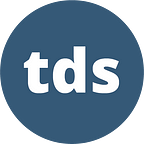How to Become a More Efficient Data Scientist
There are millions of online articles on how to be more productive. We won’t be sharing any of them here, because the concept of productivity is… a thorny one. All too often, it’s hard to distinguish calls for increased productivity from a not-so-subtle pressure to over-extend and exhaust ourselves.
Efficiency, on the other hand, is an idea that comes with built-in flexibility. It encourages us to make the most of a given situation, but with the understanding that circumstances change, chaos is sometimes inevitable, and people are complex beings. When we’re efficient, we keep things simple (or at least not more complex than they need to be), and preserve energy rather than burn it all away.
What does it mean to be an efficient data scientist? This week, we’ve selected several excellent articles that attempt to tackle this question from multiple angles. Whether you’re part of a large team or a solo consultant, a manager of other data professionals or the newest analyst at your company, we think you’ll find some solid, actionable insights here.
- Results matter more than the time you spend on a project. Samuel Flender unpacks the concept of leverage, and proposes three strategies that can help data practitioners refocus their efforts on making the biggest impact, rather than working the hardest or the longest.
- The art of future-proofing your production data pipelines. “Both the quality of the data product and the support for using and interpreting it degrade over time,” says Marian Nodine. To make your (and your colleagues’) life easier, Marian highlights four essential criteria for building sturdy pipelines with a long shelf life.
- Learn how to prioritize data requests effectively. The constant barrage of time-sensitive queries from business stakeholders has derailed the plans of countless data teams. As Marie Lefevre explains, asking five concrete questions and getting the right amount of context can help you triage requests without losing focus (or friends).
- Good record-keeping is crucial. Addressing a similar set of challenges around ad-hoc analytics requests, Robert Yi stresses the importance of documenting the work you do in service of other teams within the organization. It not only makes your efforts visible, but can also streamline future projects and allow you to detect patterns over time.
- A framework for determining the value of data projects. If you enjoy structured approaches to complex problems, check out Jordan G.’s method for determining which project should move to the top of your list. It will push you to quantify the expected time commitment, probability of success, and potential impact, and lead to more informed decisions.
- The importance of defining metrics you commit to. If your data isn’t reliable, you’re unlikely to be an efficient data scientist. That’s why Xiaoxu Gao recommends codifying your commitment—as an individual contributor or as part of a team—to delivering high-quality data and insights, and agreeing on clear metrics to measure success.
If you still have time to spare on a few more top-notch reads, you can’t go wrong with any of the following:
- We devoted our latest Monthly Edition to one of the most exciting—and thought-provoking—technological advances of recent months: the emergence and increasingly wide adoption of text-to-image AI tools.
- In her first TDS article, Lucy Dickinson demystified categorical variables in the context of logistic regression.
- How is AI transforming modern education systems? High school seniors Sanjay Adhikesaven, Abyan Das, and Monish Muralicharan are uniquely positioned to explore the benefits and risks of recent innovations.
- We were thrilled to share a four-part series on CUDA—a general purpose GPU interface—by new TDS author Carlos Costa. Part one is the best place to start if you’re new to the topic.
- Navigating office politics (especially in larger corporate settings) is a skill that no data bootcamp can teach. Cassie Kozyrkov fills in some of these gaps by encouraging data scientists to ask the right questions.
Thank you, as always, for your support. If you’d like to make the biggest impact, consider becoming a Medium member.
Until the next Variable,
TDS Editors
